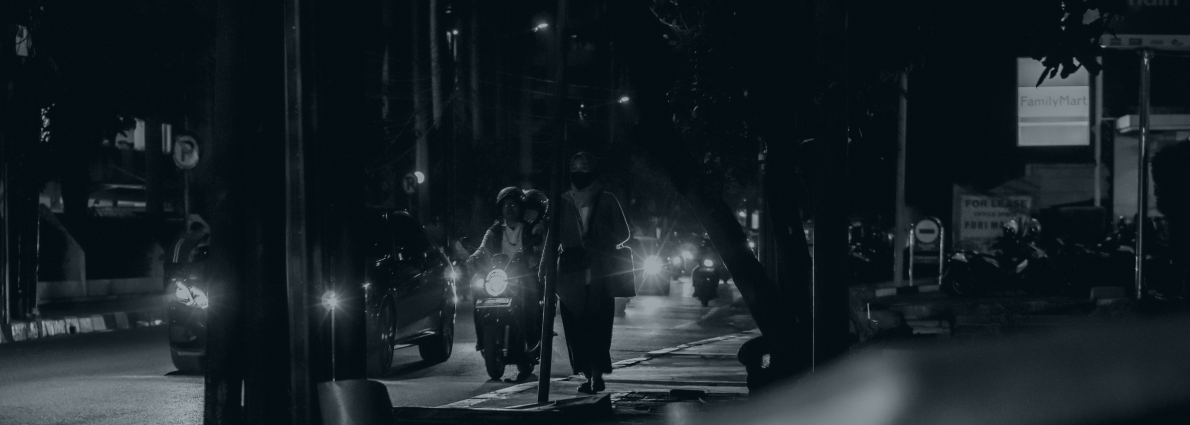Steps in Criminal Proceedings
Step 1
Understanding Hate Crime and (Violent) Extremism
Hate Crime and (Violent Extremism) in Italy
Italy does not have a legally codified definition of “hate crime”.
However, the issue is primarily addressed by the Mancino Law (Law No. 205/1993, Article 604-bis of the Penal Code), which criminalises the dissemination of ideas based on racial, ethnic, national or religious superiority or hatred, as well as the incitement to or commission of acts of violence or discrimination for such reasons.
The law also includes specific aggravating circumstances for hate-motivated crimes and imposes penalties on associations that promote or incite such forms of hatred.
In the absence of a national legal definition, the one adopted by the Office for Democratic Institutions and Human Rights (ODIHR) of the Organization for Security and Co-operation in Europe (OSCE) is commonly used.
Hate Crime
A a hate crime is a criminal offense committed against a person or associated property, motivated by a bias against a “protected characteristic” of the victim (e.g., race, religion, sexual orientation, disability, etc.).
A hate crime is thus defined by the combination of a criminal act and a discriminatory motivation that influences the offender’s choice of target.
Violent Extremism
There is no specific offence called “violent extremism” in Italian law, but counter-terrorism legislation (e.g., Article 270-quater of the Criminal Code, among others) punishes terrorist associations, advocacy of extremism, and acts intended to “intimidate the population” or “undermine the democratic order.”
Discrimination
Italian law defines racial discrimination (Article 1 of the New York Convention, transposed by Law 654/1975) as any distinction, exclusion or preference based on race, colour, ethnicity or religion that limits access to rights or institutions. In civil law, anyone who engages in harassment or discrimination on these grounds may be sanctioned under Article 44 of the Consolidated Immigration Act (TUI) and Article 28 of Legislative Decree 150/2011.
How do these crimes differ from general offences?
From a legal perspective, hate crimes, discrimination, and violent extremism differ from general offences in three key ways:
- The ideological or prejudicial motivation that classifies them as more serious;
- The protection of collective legal goods such as equality and democratic security;
- The application of specific aggravating factors, targeted legislation, and stronger preventive tools.
Unlike common crimes, these offences aim to counteract phenomena that threaten public order and social cohesion

Step 2
Reporting the Crime
Where to report the crime
In Italy, hate crimes can be reported to any law enforcement agency (State Police, Carabinieri, or Guardia di Finanza).
Certain departments, such as the Digos (General Investigations and Special Operations Division) or the anti-discrimination units of the Postal Police, specifically handle these types of offences.
Since 2010, Italy has had OSCAD (Observatory for Security against Discriminatory Acts), a body of the State Police and the Carabinieri whose specific objective is to prevent and combat discriminatory crimes, including hate crimes and hate speech, both offline and online.
Victims of hate crimes can report the incident directly to OSCAD.
Victim’s rights during the reporting phase
Victims have the right to:
- Protection
- Psychological
- Legal support and participation in the legal process
- In some cases, free legal aid
They can also contact UNAR (National Office Against Racial Discrimination) for reporting and assistance in cases of discrimination.
Step 3
Police Investigation
What happens after reporting
After reporting a hate crime, law enforcement authorities collect evidence and initiate investigations. The Public Prosecutor coordinates the investigation and decides whether to pursue criminal charges.
Role of the victim in the investigation
The victim plays a fundamental role: they can provide testimony, indicate evidence, be heard multiple times, and update authorities on any developments.
Rights of the victim during the police investigation
During the investigation, the victim has the right to:
- Be informed about the progress of the proceedings
- Receive protection if in danger, and, if necessary, to obtain specific protection measures.
- Legal and psychological assistance,
- Interpretation services
- Free legal aid if they meet the eligibility criteria
Outcomes of the Investigation
The investigation may lead to various outcomes:
- Dismissal – if there is insufficient evidence
- Indictment – if there is sufficient proof
- Alternative measures such as restorative justice
In the case of trial, the victim can join the proceedings as a civil party to claim compensation for damages.
The active and protected involvement of the victim is an essential part of the system—especially in hate-motivated crimes—to ensure justice, prevention, and proper acknowledgment of the harm suffered.

Step 4
Public Prosecutor’s Role
Decision-making process
During the preliminary investigation phase, the Public Prosecutor (PM) plays a central role in the decision-making process.
As the authority responsible for criminal prosecution, the PM oversees the activities of the judicial police and decides whether the evidence collected justifies proceeding to trial or whether the case should be dismissed.
The prosecutor assesses both the objective and subjective elements of the crime, with particular attention to hate motivation, which is crucial in hate and discrimination-related offences.
The criminal trial can take place according to different procedures and lead to different sentences, based on the severity of the committed crime and the specific conduct of the offender, who is normally more heavily punished if he is a repeat offender for committing the same type of crime.
After the judgement has become final, jurisdiction passes to the Surveillance Court which deals with the enforcement of the sentence in prison or in one of the alternative measures available in Italy in the specific case, in accordance with current law.
The victim is informed by the competent authority when security measures applied for her/his protection come to an end.
Victim’s role and rights in this phase
Under Directive 2012/29/EU, the victim has the right to:
- Free legal assistance and translation services;
- To be informed about the progress of the proceedings in a language that can be understood from them;
- To submit statements, documents, and requests for evidentiary hearings;
- To ask to be heard.
In serious cases, the victim may also appeal decisions not to proceed with prosecution, providing reasons why the case should move forward. Finally, they may join the criminal proceedings as a civil party to claim compensation for the harm suffered.

Protective measures for victims
During this phase, victims may benefit from personal and home protection measures, particularly in the case of minors or persons with disabilities, especially if there is a concrete risk of retaliation or repeat offences.
Psychological support, social services, and identity protection are also provided, especially for minors or vulnerable individuals.
Outcomes of the Public Prosecutor’s Review
Possible outcomes of the Public Prosecutor’s review include:
- A request for case dismissal;
- A request to proceed to trial;
- A request to apply alternative procedures.
In all cases, the decision must be examined and validated by a preliminary investigations judge.
Step 5
Court Proceedings
What Happens in Court and the Victim’s Role
During court proceedings, the victim assumes an active and essential role. They provide direct testimony, attend hearings, and, when applicable, participate as a civil party to request compensation for damages resulting from the crime.

Special Protection in Court (If It Exists)
To ensure the victim’s safety and well-being, especially in cases involving minors, people with disabilities, or those vulnerable to intimidation, the court may grant special protections.
These can include the use of:
- Separate waiting areas;
- Video-link testimony to avoid face-to-face confrontation with the accused;
- The presence of a support person during questioning to minimise emotional distress.
What Happens After the Trial
Once the court reaches a decision, the following may occur:
Conviction
→ If the accused is found guilty, the court may impose penalties such as prison, fines, or restrictions.
Acquittal
→ If acquitted, the accused is cleared of charges, though civil or administrative options may still be available.
Order judicial decisions
Rights After the Trial
Following the trial, victims have several rights:
- They must be informed about the outcome, including any decisions on appeals;
- They have access to continued psychological and legal support;
- They can enforce compensation orders awarded by the court.
These measures ensure that victims remain protected and supported throughout the entire judicial process.
